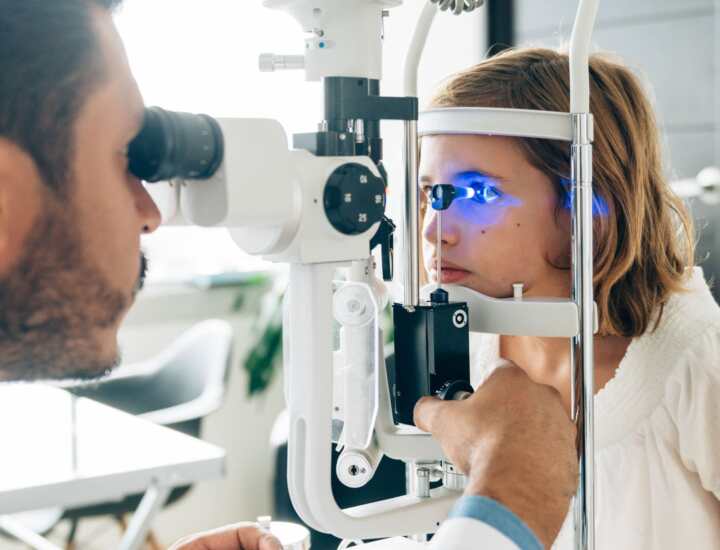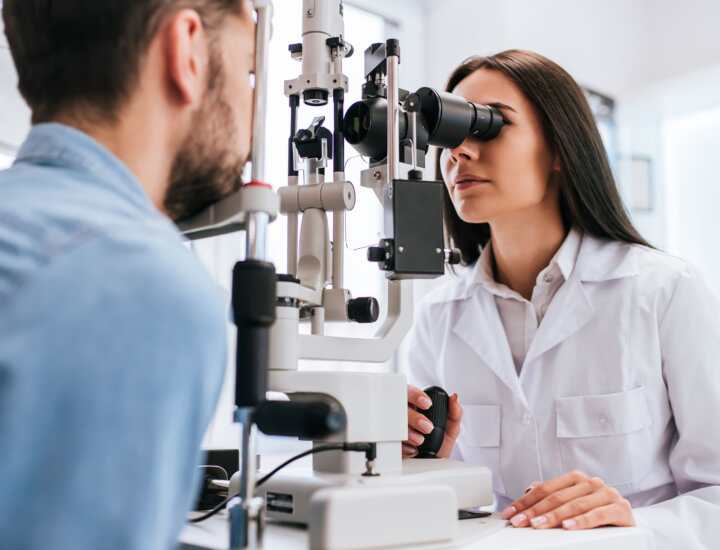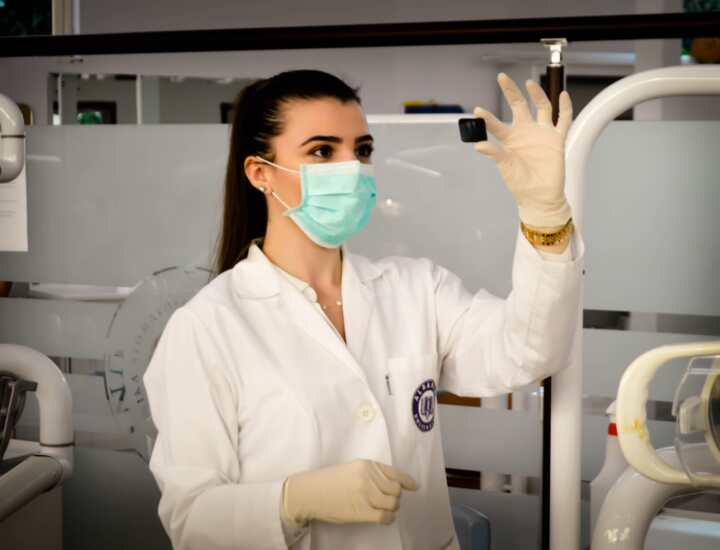One of the most important things you can do for your eye health is to ensure you continue to have regular checkups with your eye care professionals, even once you have a diagnosis. Your eye care professionals will be able to tell you who is best placed to care for your eyes. The team will likely include:
Ophthalmologist
- An ophthalmologist is a doctor who specialises in the medical and surgical care of the eyes and prevention of eye disease. They are highly trained, having completed specialist fellowships after their medical degrees.
- An ophthalmologist can treat eye diseases, prescribe medications, and perform surgery to improve, or prevent the worsening of, eye and vision-related conditions.
- Some ophthalmologists sub-specialise in retinal diseases and inherited retinal diseases.
- You will usually need a referral from a general practitioner or optometrist before you can visit an ophthalmologist.


Optometrist
- An optometrist is a health care professional who specialises in function and disorders of the eye, detection of eye disease, and some types of eye disease management.
- An optometrist is trained to examine the eyes for visual defects, diagnose problems or impairments, prescribe corrective glasses and contact lenses, and prescribe some medications for eye disease.
Orthoptist
- Orthoptists are allied health care practitioners who specialise in diagnostic procedures related to disorders of the eye and visual system.
- Unlike ophthalmologists and optometrists, they cannot prescribe medications.
- They are a key part of the eye care team at most ophthalmology practices, and will perform technical tests to aid the ophthalmologist in the diagnosis and best treatment of your eye condition.
- Orthoptists are also often a great resource for patient education, to help you understand more about your eye condition and the treatments being offered.

Preparing for eye care visits
It is useful to prepare for your eye care visits and examinations by thinking through what you will need to take with you and what you want to know. During the examination, be sure to ask questions. Here are some that may assist.
At the initial detection of your condition
- What kinds of tests will I have?
- What do you expect to find out from these tests?
- When will I know the results?
- Do I have to do anything special to prepare for any of the tests?
- Do these tests have any side effects or risks?
When a diagnosis has been made
- What is my diagnosis?
- A description in layman’s terms would be?
- What caused my condition?
- Can my condition be treated?
- How will this condition affect my vision now and in the future?
- Should I watch for any particular symptoms and notify you if they occur?
- Should I make any lifestyle changes?
When discussing treatments
- What is the treatment for my condition, if any?
- When will the treatment start, and how long will it last?
- What are the benefits of this treatment, and how successful is it?
- What are the risks and side effects associated with this treatment?
- Are there foods, drugs, or activities I should avoid while I’m on this treatment?
- If my treatment includes taking a medication, what should I do if I miss a dose?
- Are there alternative treatments?
If you don’t understand your doctor’s responses, ask questions until you do understand. Take notes, or get a friend or family member to take notes for you.
Alternatively, you could
-
Bring a recording device to assist in your recollection of the discussion.
-
Ask your doctor to write down his or her instructions to you.
Ask your doctor for printed material about your condition.
If you still have trouble understanding your doctor’s answers, ask where you can go for more information. Other members of your health care team, such as nurses and pharmacists, can be good sources of information, you can talk to them too.
Adapted from: Retina New Zealand – Your Blue Book
